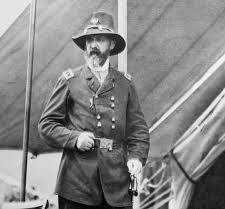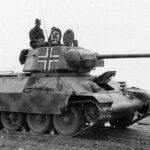Does General Meade get the credit he deserves for his conduct at Gettysburg? General George G. Meade often does not receive the full credit he deserves for his conduct at the Battle of Gettysburg. There are several reasons for this:
Timing of Command:
Meade took command of the Army of the Potomac just days before the Battle of Gettysburg, which meant he had limited time to impose his strategic vision and leadership style on the army. Despite this, he successfully managed the complex logistics and communications necessary to concentrate his forces and engage the Confederate Army.
Focus on Other Figures:
The Battle of Gettysburg has several iconic figures, such as Joshua Chamberlain, who is celebrated for his defense of Little Round Top, and General Robert E. Lee, whose reputation looms large over the battle. This focus can sometimes overshadow Meade’s contributions.
Post-Battle Perception:
After the battle, Meade faced criticism for not pursuing Lee’s army more aggressively as it retreated. While Meade did organize a pursuit, logistical challenges and the exhausted state of his army made a rapid chase difficult. Critics, including President Lincoln, were disappointed that the Army of Northern Virginia was not decisively destroyed, affecting Meade’s legacy.
Historical Narrative:
Over time, the narrative of the Civil War has often highlighted the roles of other generals, such as Ulysses S. Grant and William Tecumseh Sherman, overshadowing Meade’s achievements. Grant, who later took command of all Union armies, often receives more attention for the overall Union victory.
Military Strategy:
Meade’s defensive strategy at Gettysburg was crucial. He effectively utilized the terrain, particularly the high ground on Cemetery Ridge, to repel Confederate attacks. His decisions during the battle were instrumental in the Union’s success.
Recognition in Historical Accounts:
While some historians and Civil War enthusiasts recognize Meade’s pivotal role, he doesn’t always receive the same level of public recognition as some of his contemporaries.
Despite these factors, Meade’s leadership at Gettysburg was critical to the Union victory. His ability to command under pressure, make strategic decisions, and maintain cohesion within his army during one of the war’s most significant battles demonstrates his competence and importance as a military leader.


